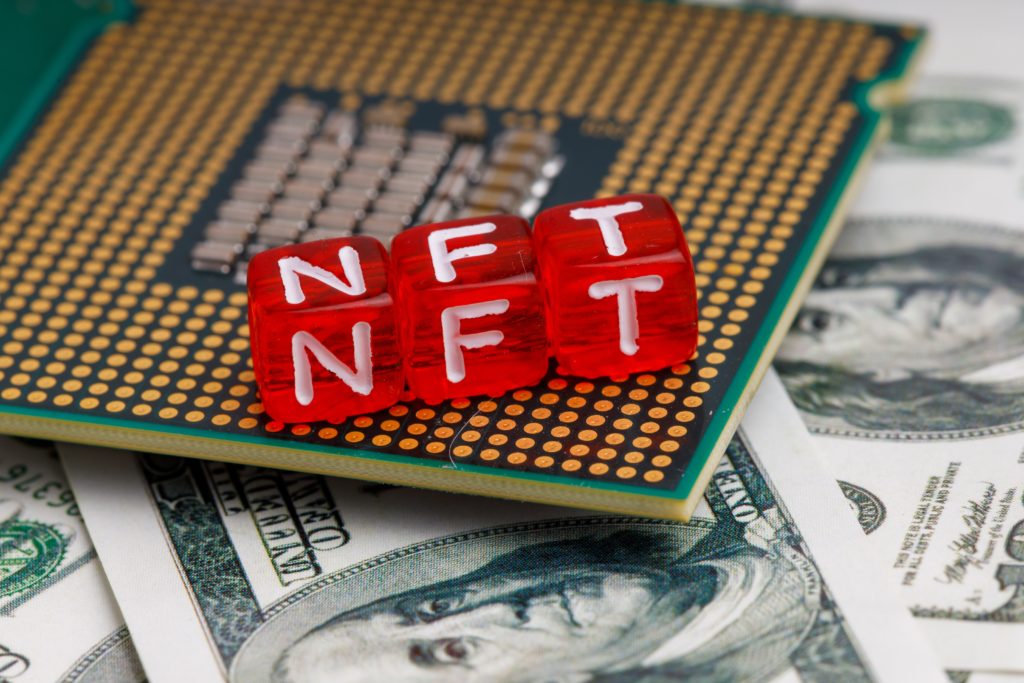By Kyriaki Christodoulou

The metaverse is rapidly becoming our new reality, a new reality that requires the same law and order that non-virtual reality does. In other words, the metaverse needs laws! The introduction of the metaverse has galvanized the transformation of our various bodies of laws and continues to raise novel, complex legal questions. One prime example – the subject of this article – is how trademark laws are adapting to the latest NFT technology.
First of all, NFT stands for non-fungible token. It is a digital asset based in blockchain technology, much like Bitcoin. However, unlike Bitcoin and other cryptocurrencies, NFTs are not replaceable or interchangeable. Each token is unique because of a distinctive software code linking the token to the underlying asset, like a unique work of art that cannot be recreated. That software code is called a smart contract, which includes intellectual property rights associated with that NFT.
A trademark is a designation – a color, a logo, a name – used to identify and distinguish a particular good or service from other sources. Federal trademark registration with the United States Patent and Trademark Office (“USPTO”) affords the owner of the mark (1) protection, and (2) freedom. Registration protects against counterfeiting and ensures brand exclusivity; the owner is the only one that can legally use the mark. It also allows the owner to freely enter the metaverse to advertise and collaborate with other brands, reducing infringement concerns. This protection and freedom to participate in the virtual marketplace not only supports maximized profits but safeguards those profits as well.
The good news for the intellectual property attorneys studying up to familiarize themselves with the many facets of the metaverse is that one thing remains constant: the standard USPTO registration application process. Nonetheless, attorneys must strategically evaluate the 45 classes of goods and services under which they now choose to register an NFT.
Apart from the registration, monitoring case developments in the area will prove imperative to their practice. Currently, two notable cases involving NFT and trademark rights are pending before the United States District Court for the Southern District of New York and are among the first significant litigated trademark matters involving NFTs.
Hermès International v. Rothschild
In this case, Hermès filed a lawsuit against Mason Rothschild after he began selling NFTs displaying the timeless Hermès Birkin bag, claiming infringement and dilution of its mark. Rothschild raised a First Amendment defense, stating that the use of a mark in an expressive work is protected speech when the work is artistically relevant, and the use is not “explicitly misleading.” While the Court agreed with Rothschild as to the infringement claim, it decided there was more work to be done with respect to the “explicitly misleading” element.
Nike, Inc. v. StockX LLC
StockX, an e-commerce retail platform, launched The Vault [StockX’s first NFT venture is The Vault, which used tokens as a representation of authenticity and provenance for its sneaker resale market] in late 2022, allowing buyers to track ownership of physical products such as sneakers. Nike sued StockX, alleging that its use of Nike’s famous marks in connection with StockX’s NFTs amounted to trademark infringement. Nike, in an amended complaint, included counterfeiting and false advertising claims. StockX replied that the NFTs are not physical products, and that each NFT was tied to a specific product that it had already authenticated. The case is still pending.
The Hermès and Nike litigations remind attorneys of the critical need to continue monitoring case law in today’s tech-centered world. They should also remind entrepreneurs of the benefit to being proactive and seeking expert advice from experienced counsel.
At KI Legal, we do the monitoring for you, and we have already identified issues involving NFTs beyond the ones discussed in this article. For more information on the intersection between NFTs and Intellectual Property, please contact the experienced Intellectual Property attorneys at KI Legal.
Sources
- https://www.reuters.com/legal/legalindustry/trademark-copyright-considerations-nfts-2022-05-02/
- https://www.reuters.com/legal/legalindustry/demystifying-nfts-intellectual-property-trademark-copyright-concerns-2022-06-17/
- https://www.complex.com/sneakers/stockx-vault-nft-sneakers/
*ATTORNEY ADVERTISING*
*PRIOR RESULTS DO NOT GUARANTEE A SIMILAR OUTCOME*
This information is the most up to date news available as of the date posted. Please be advised that any information posted on the KI Legal Blog or Social Channels is being supplied for informational purposes only and is subject to change at any time. For more information, and clarity surrounding your individual organization or current situation, contact a member of the KI Legal team.
_____________________________________________________________________________________________
KI Legal focuses on guiding companies and businesses throughout the entire legal spectrum. KI Legal’s services generally fall under three broad-based practice group areas: Transactions, Litigation and General Counsel. Its extensive client base is primarily made up of real estate developers, managers, owners and operators, lending institutions, restaurant and hospitality groups, construction companies, investment funds, and asset management firms. KI Legal’s unwavering reputation for diligent and thoughtful representation has been established and sustained by its strong team of reputable attorneys and staff. For the latest updates, follow KI Legal on LinkedIn, Facebook, and Instagram. For more information, visit kilegal.com.
The post NFTs and Intellectual Property appeared first on KI Legal.
